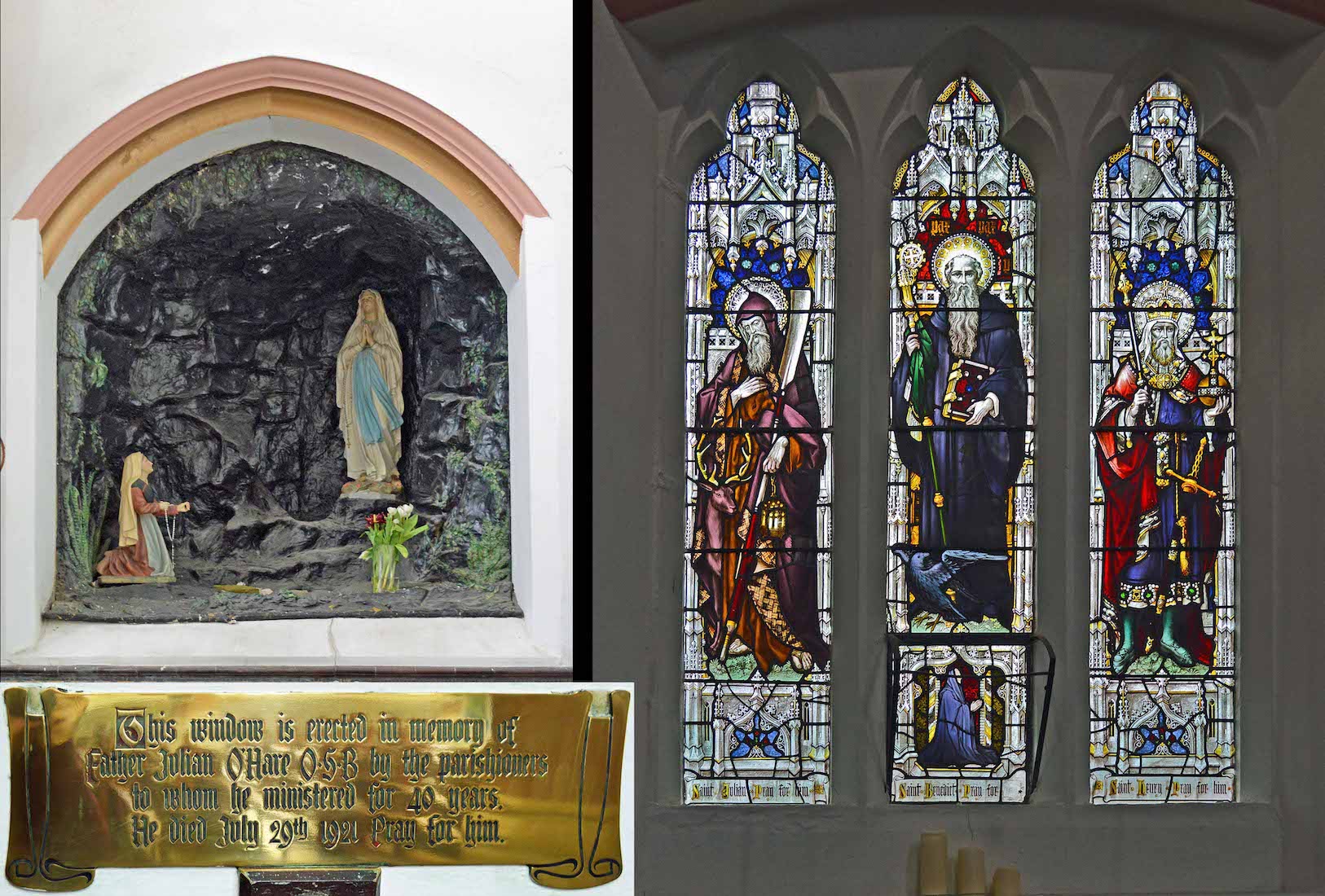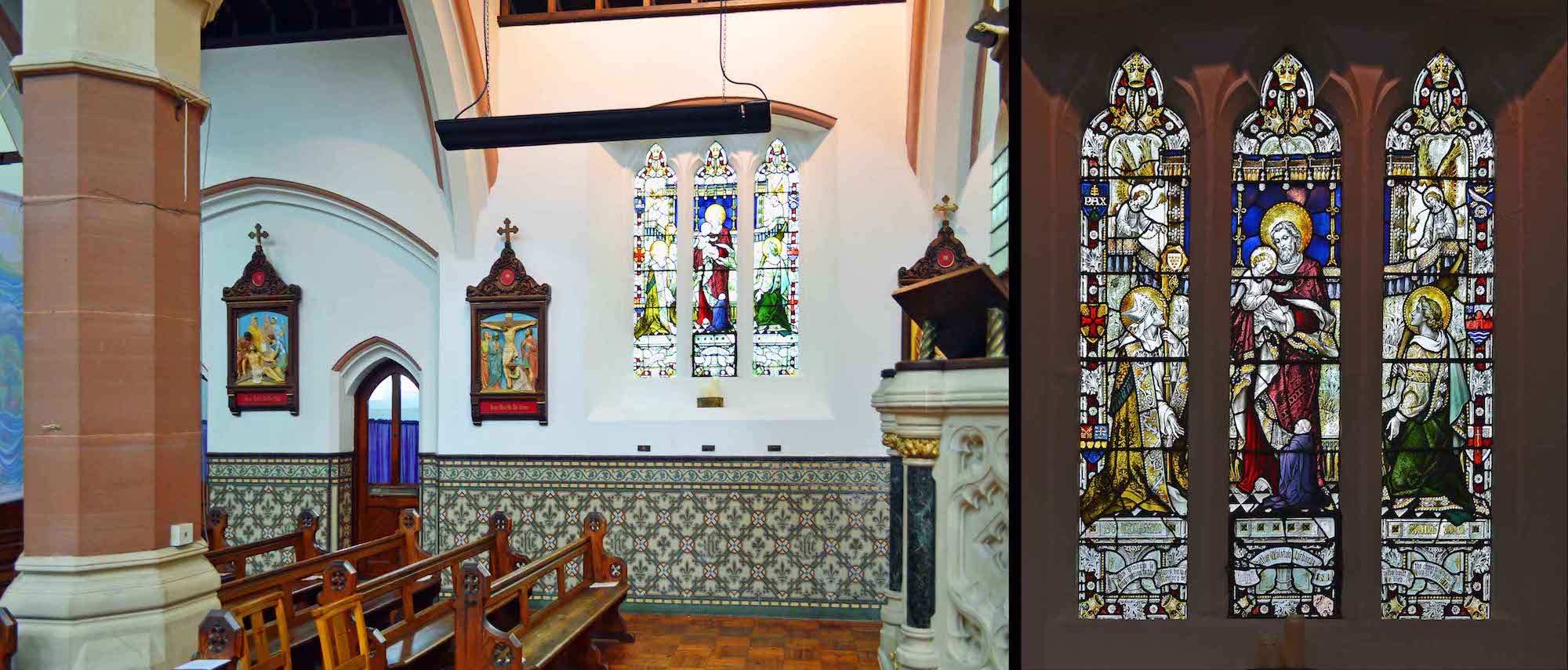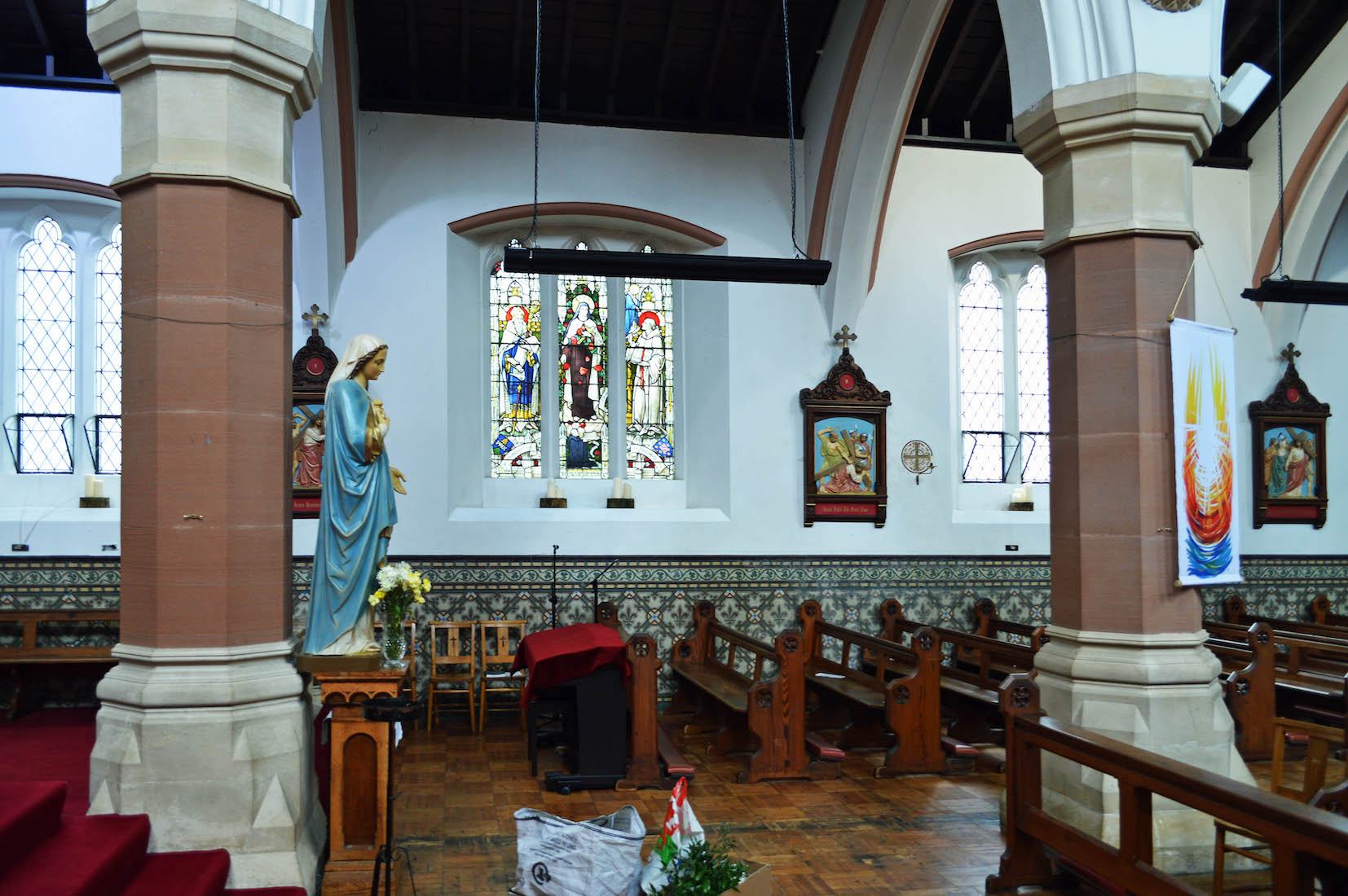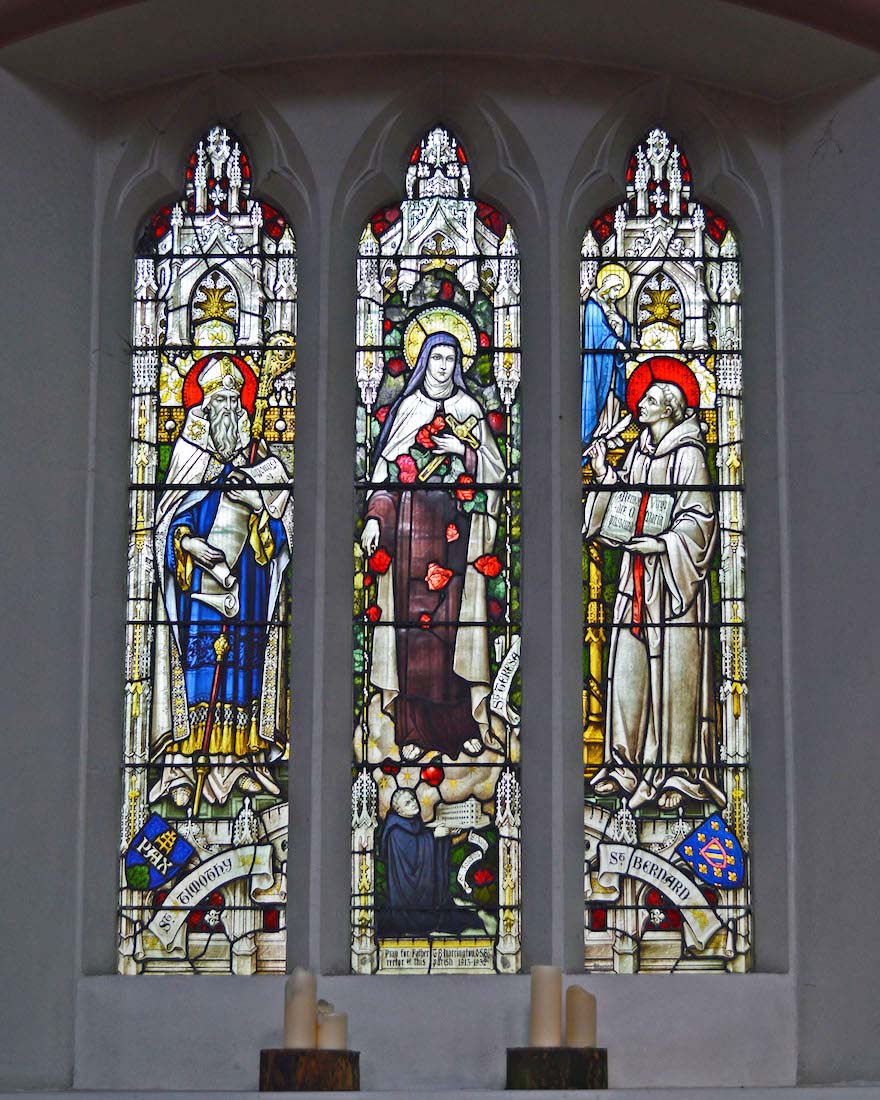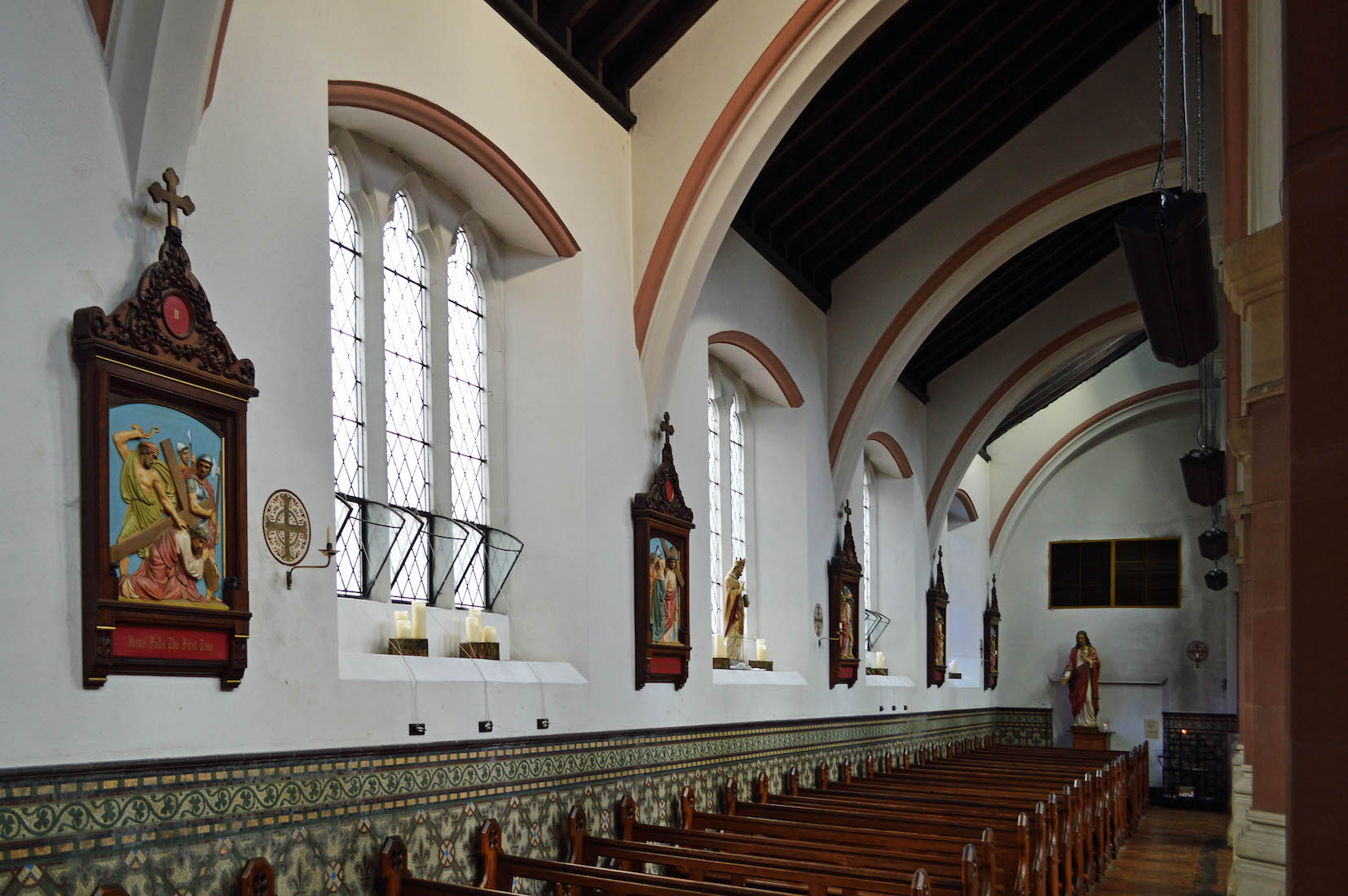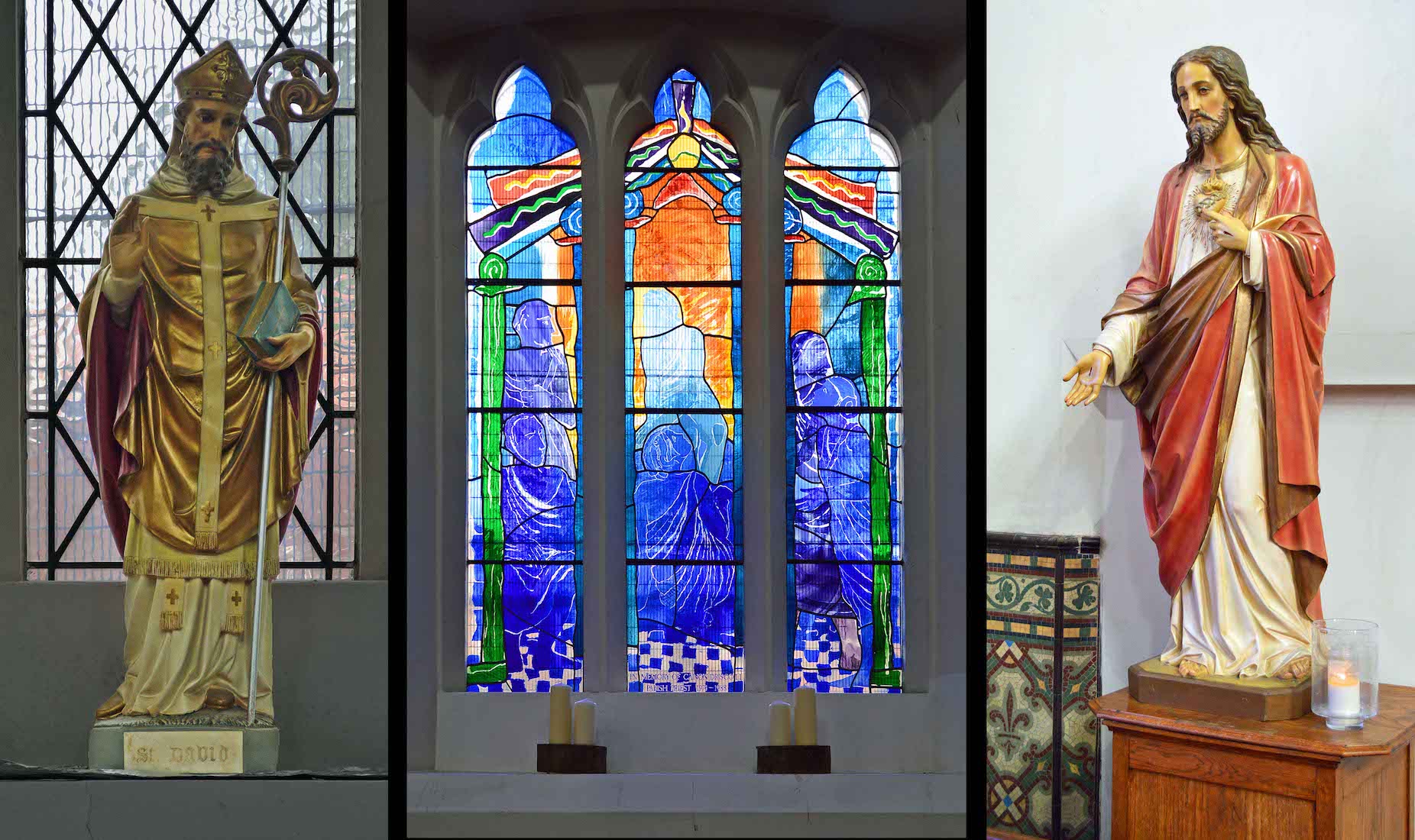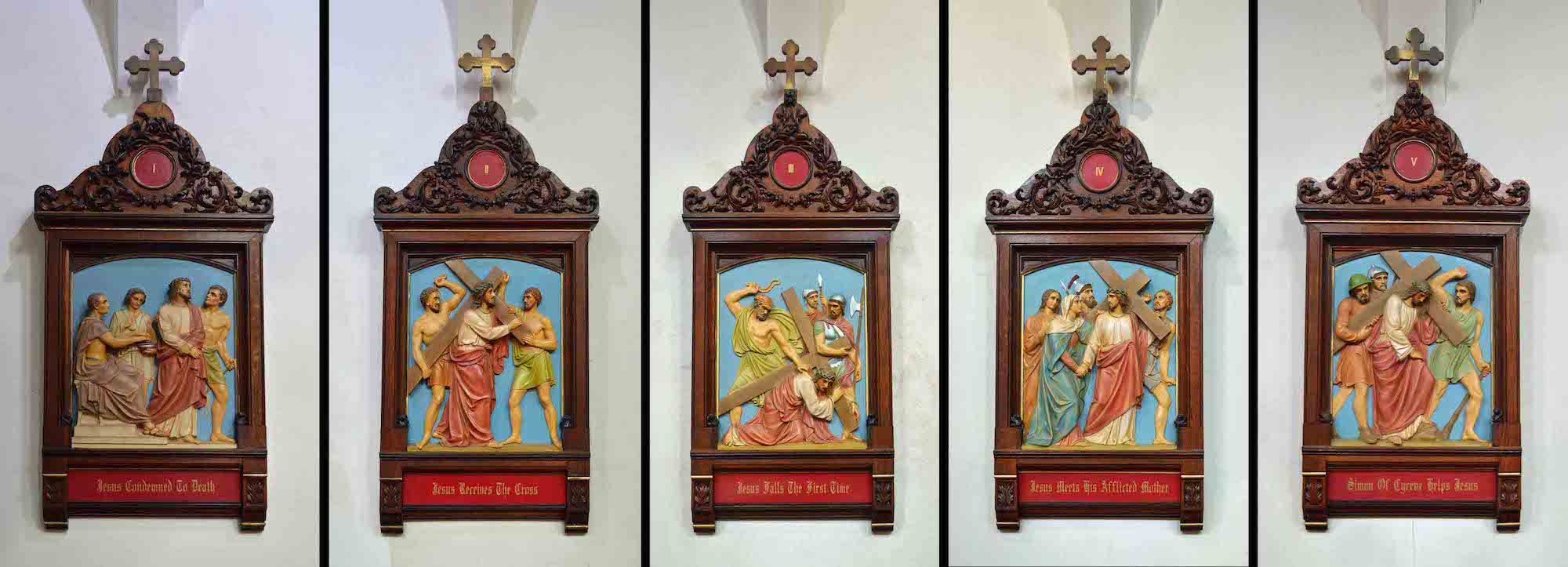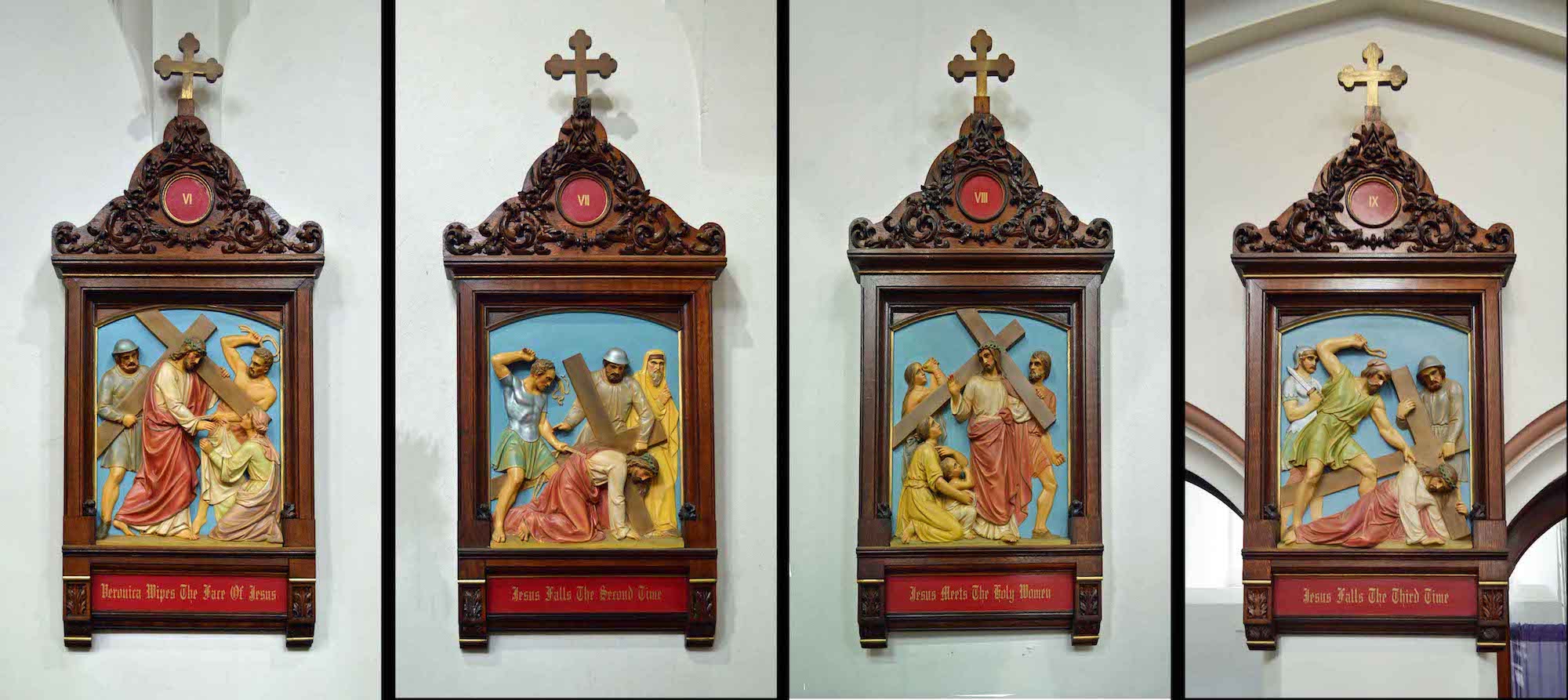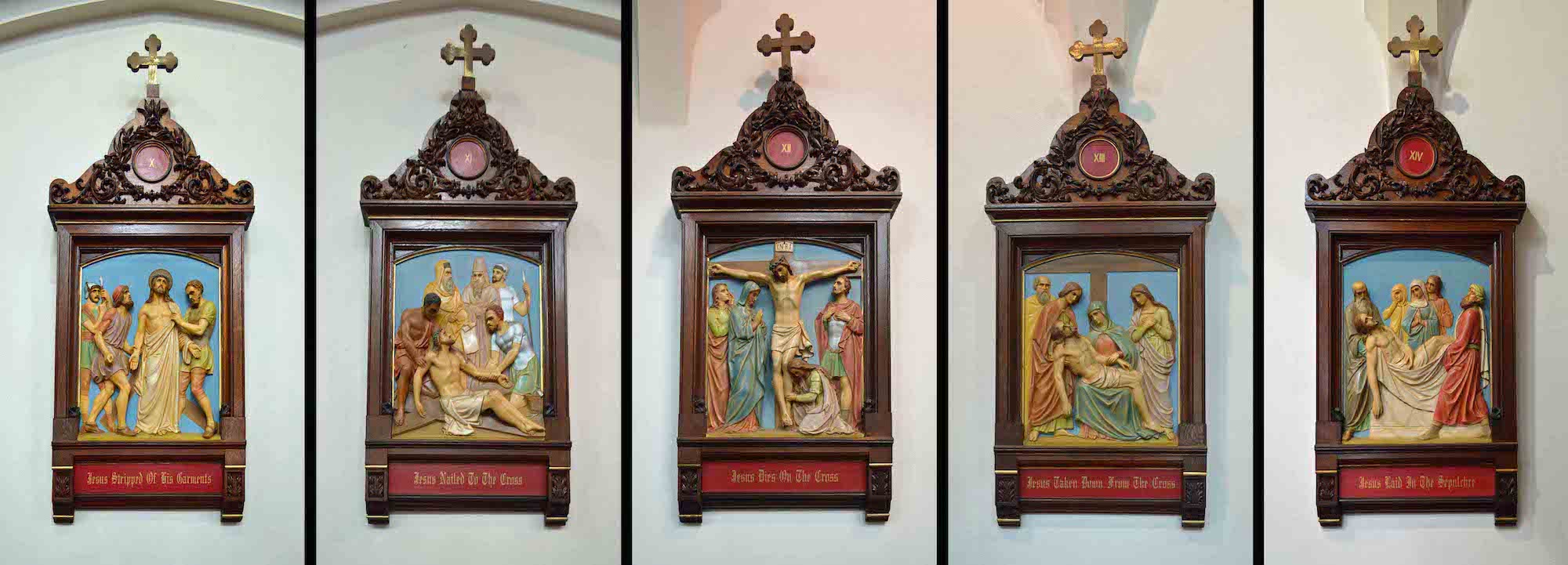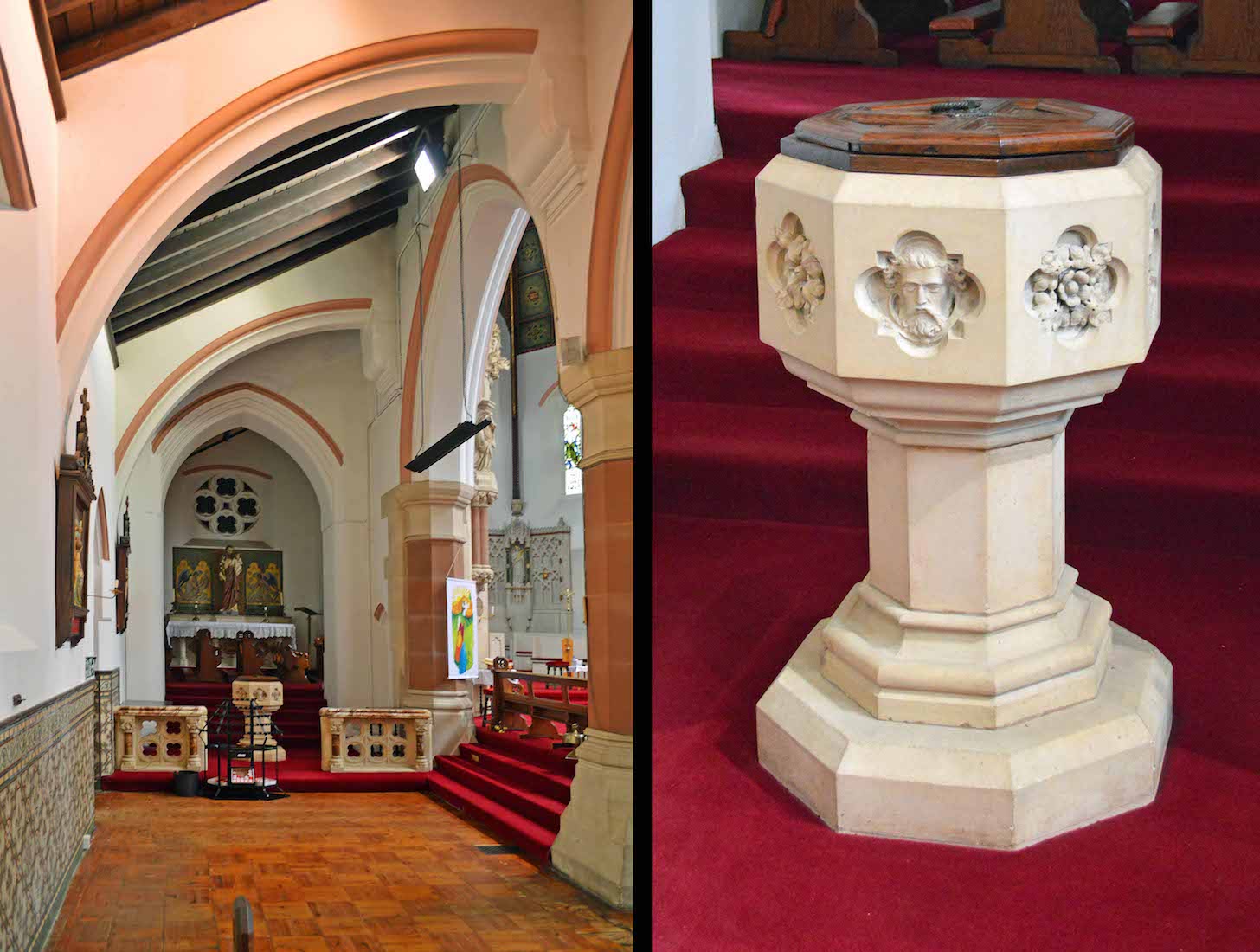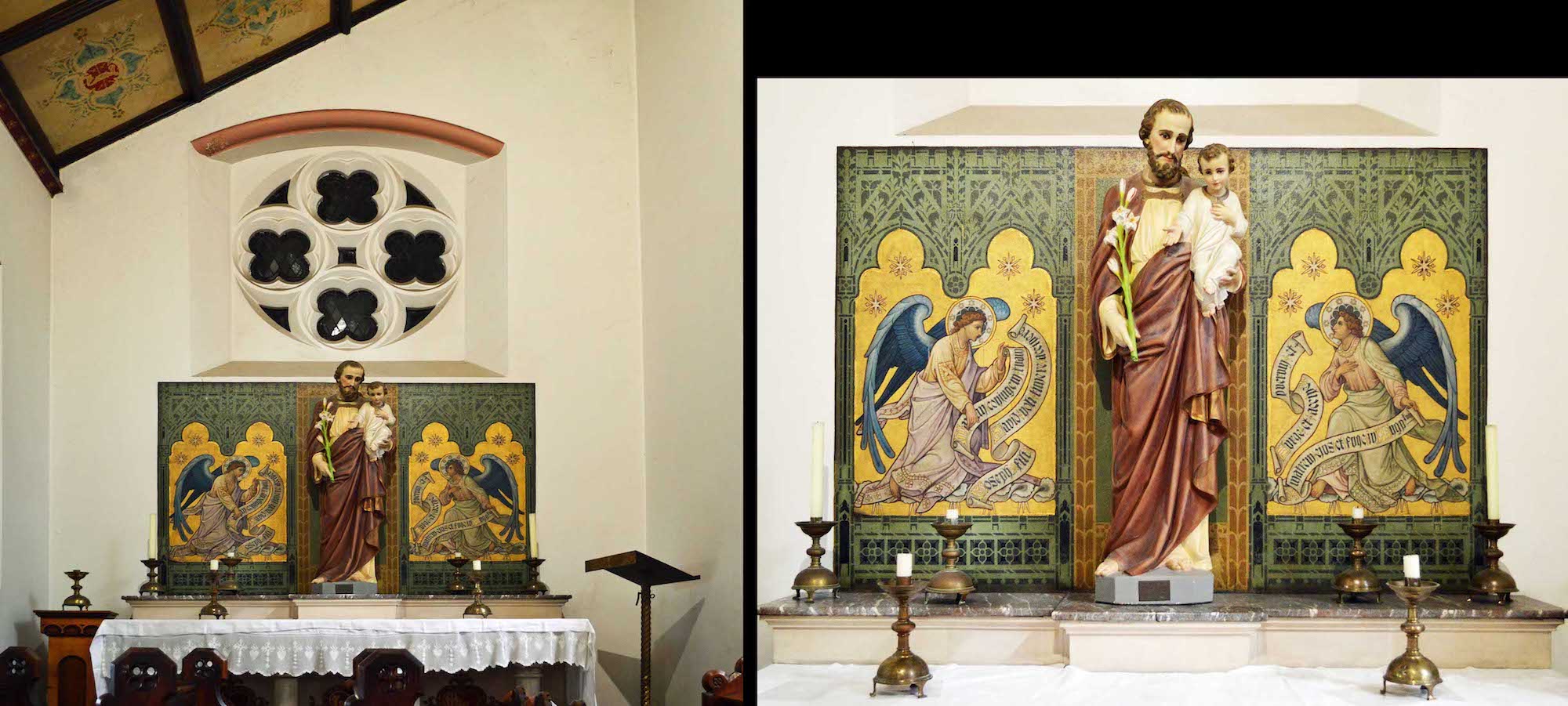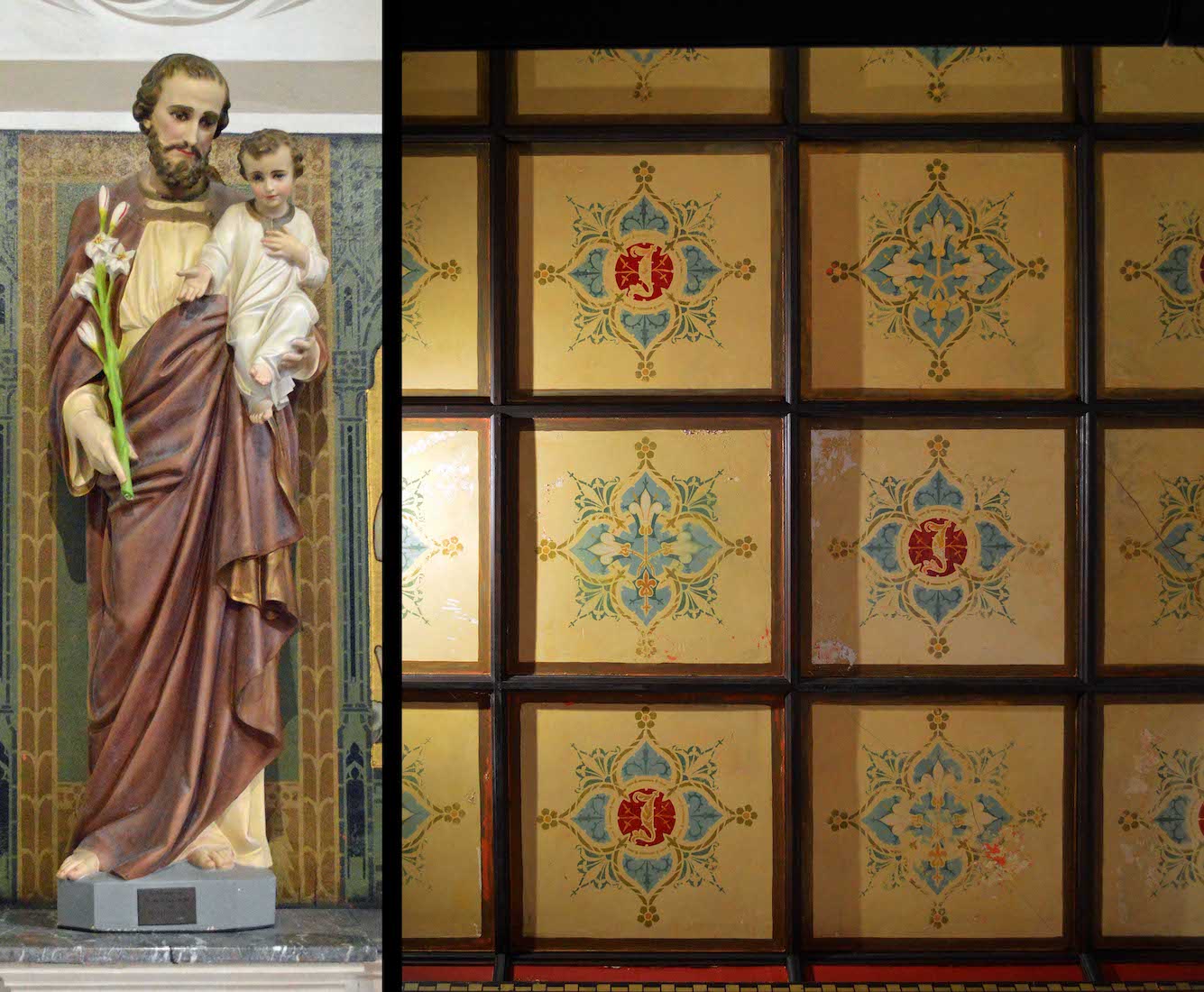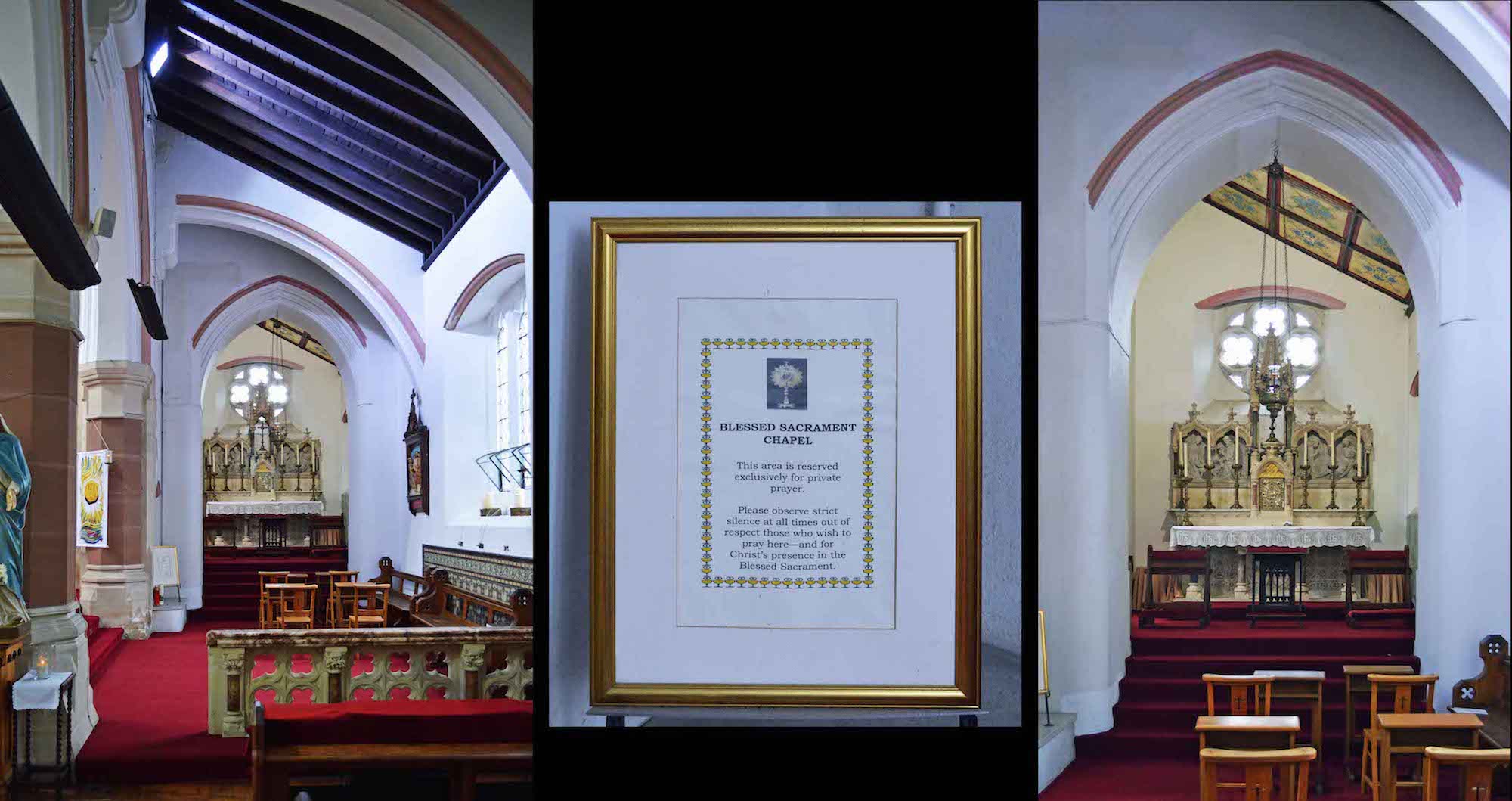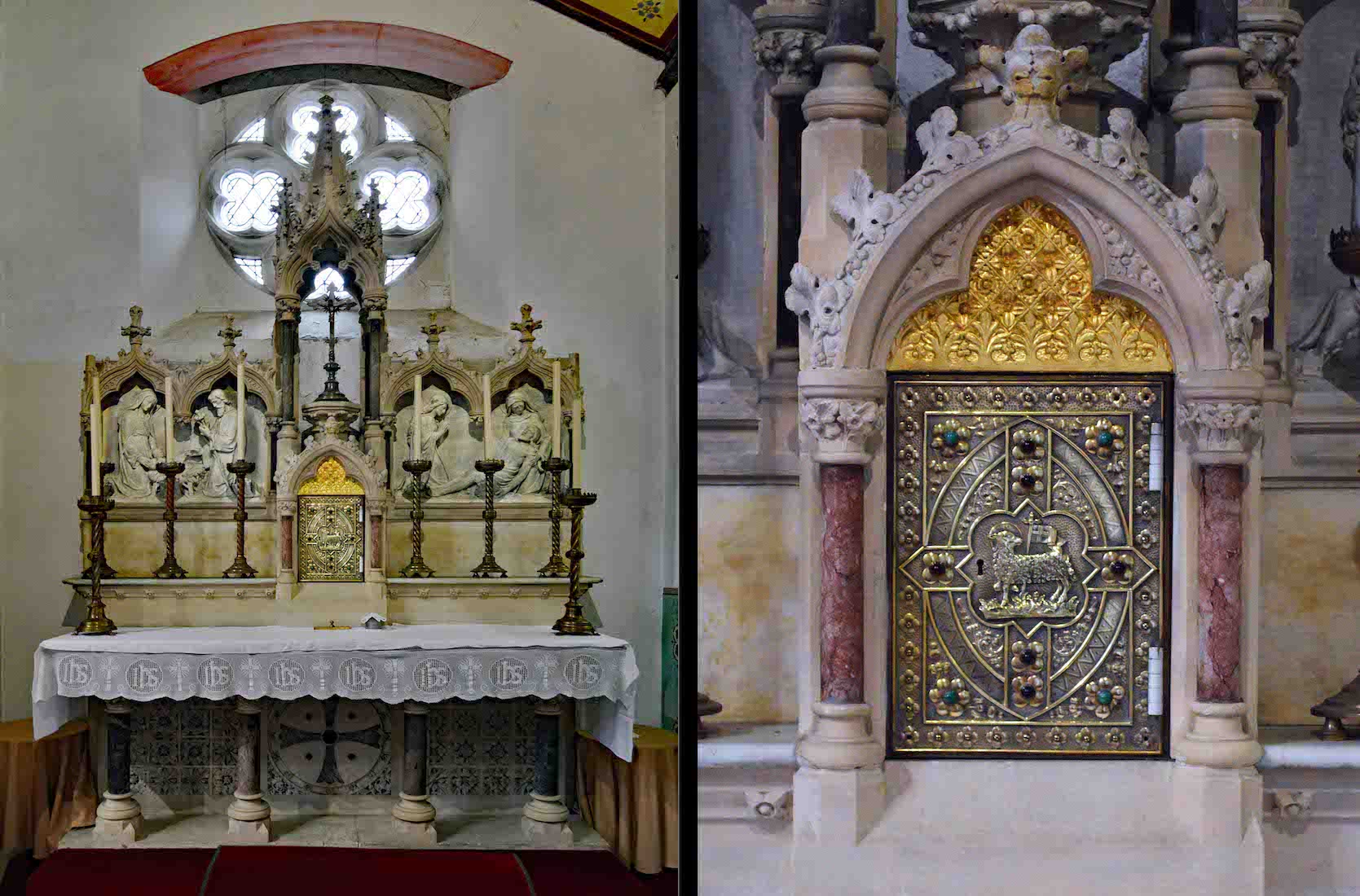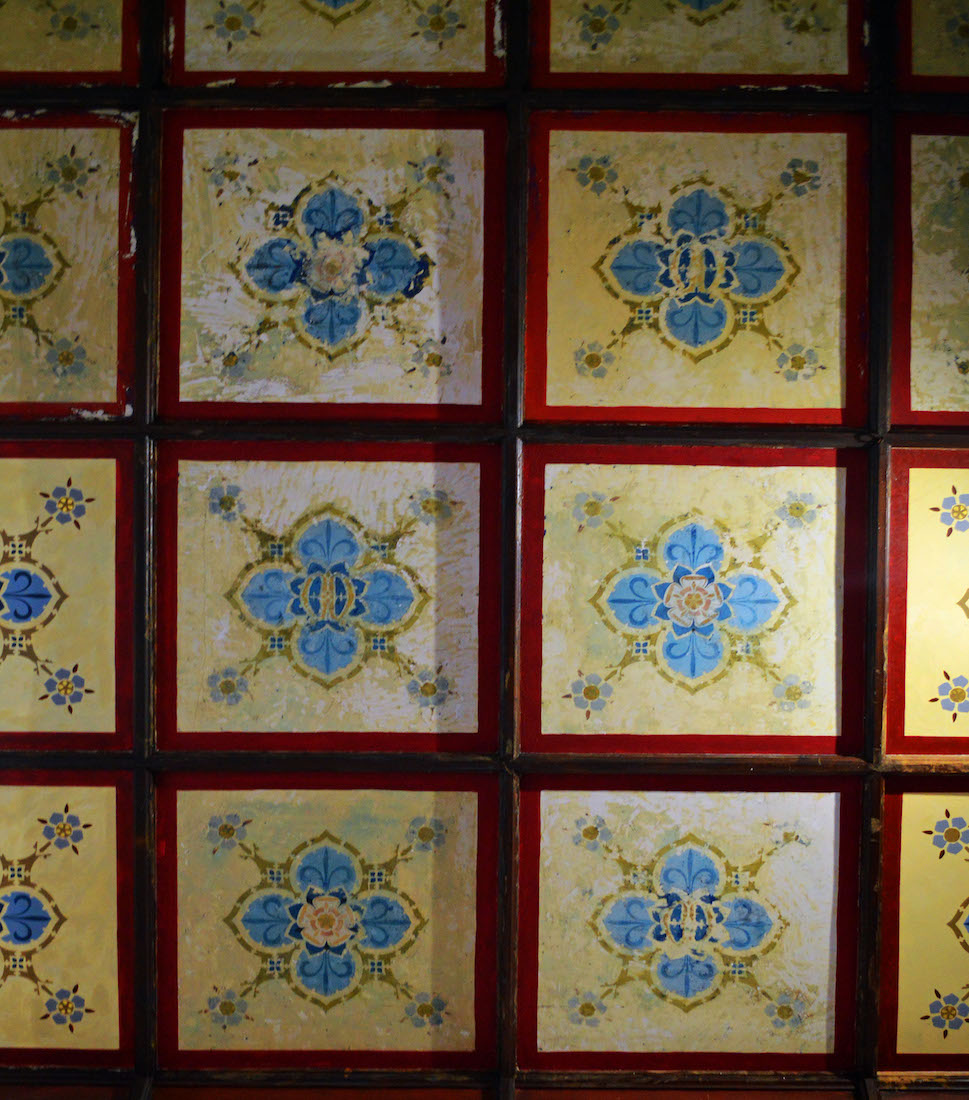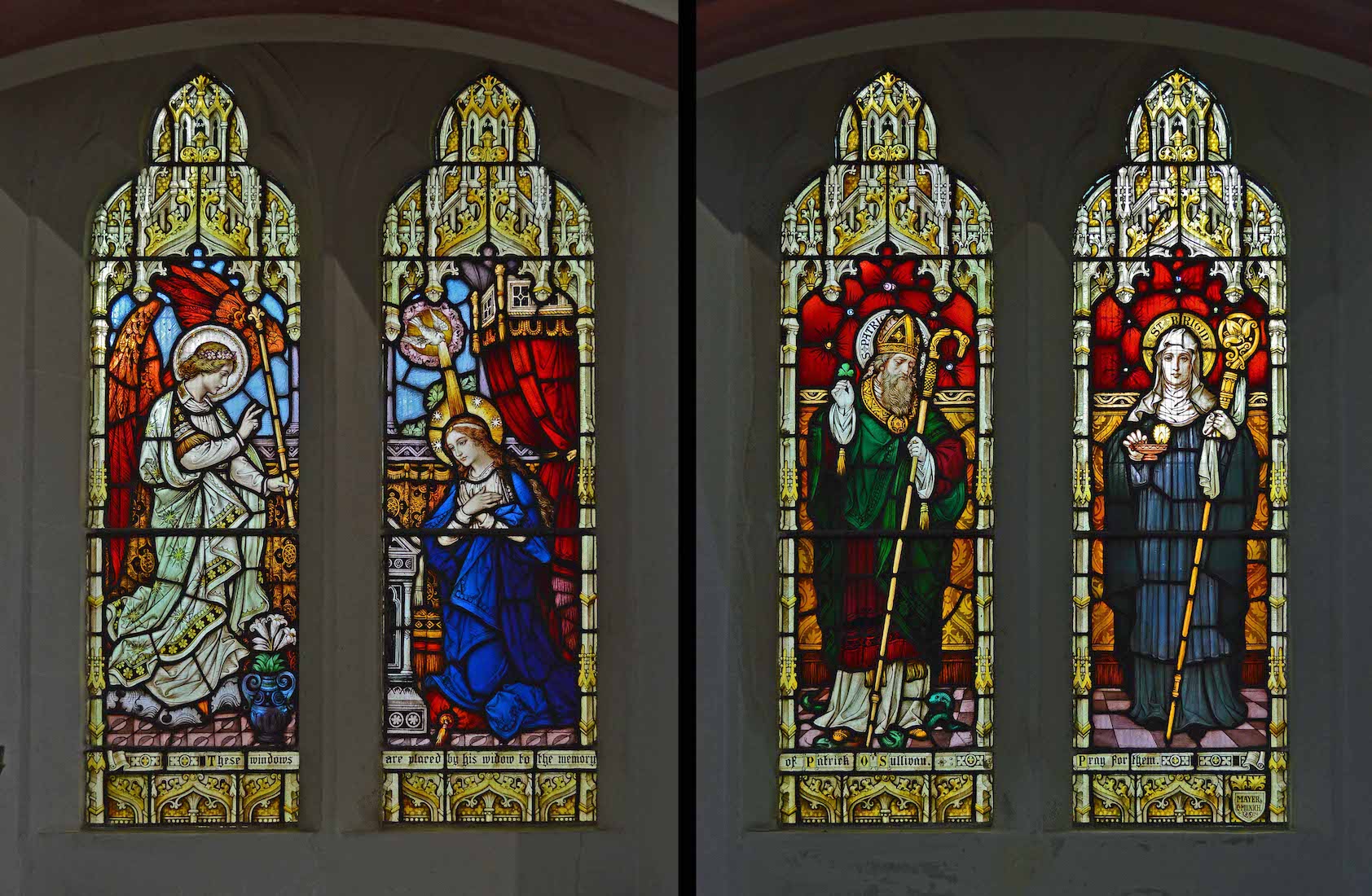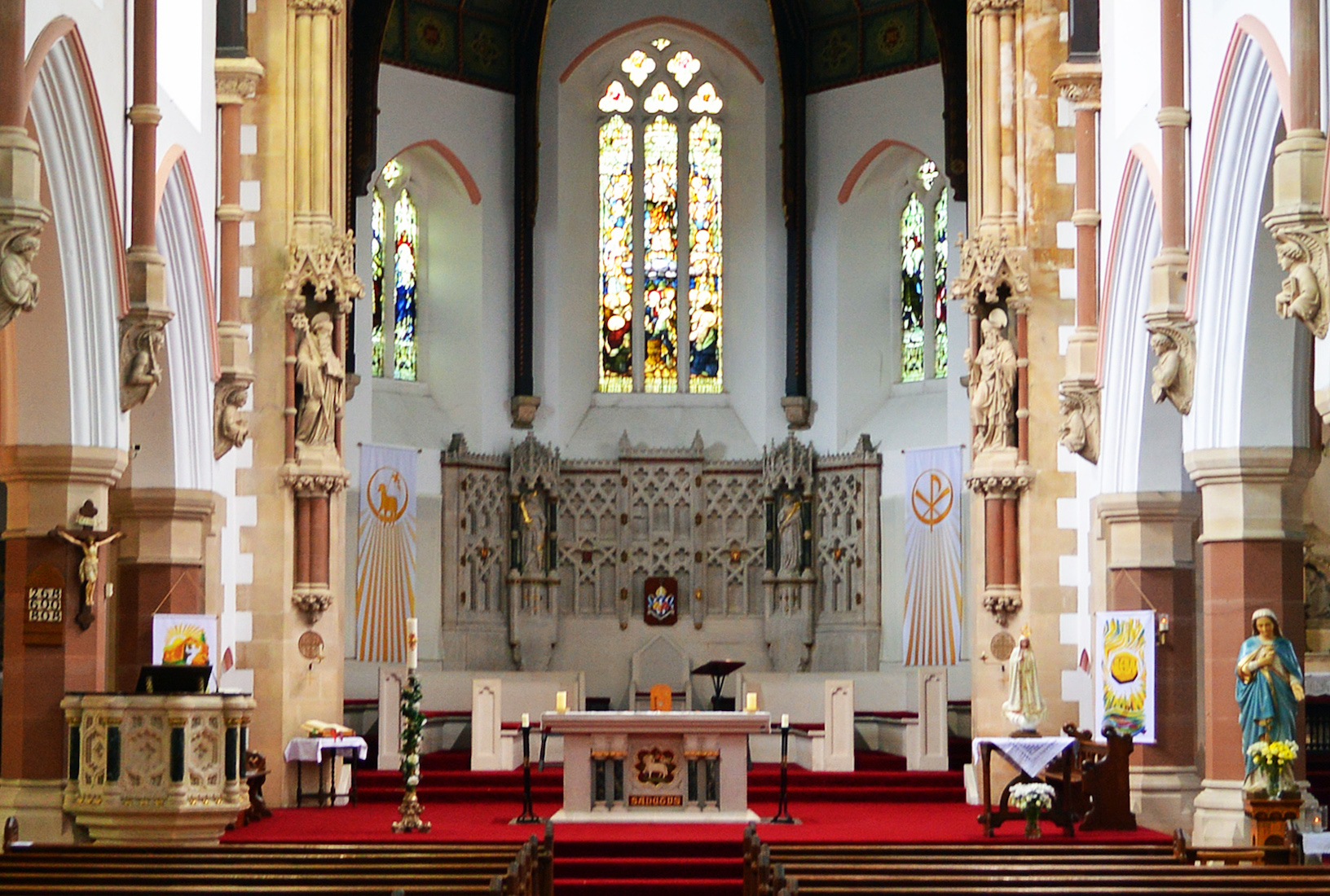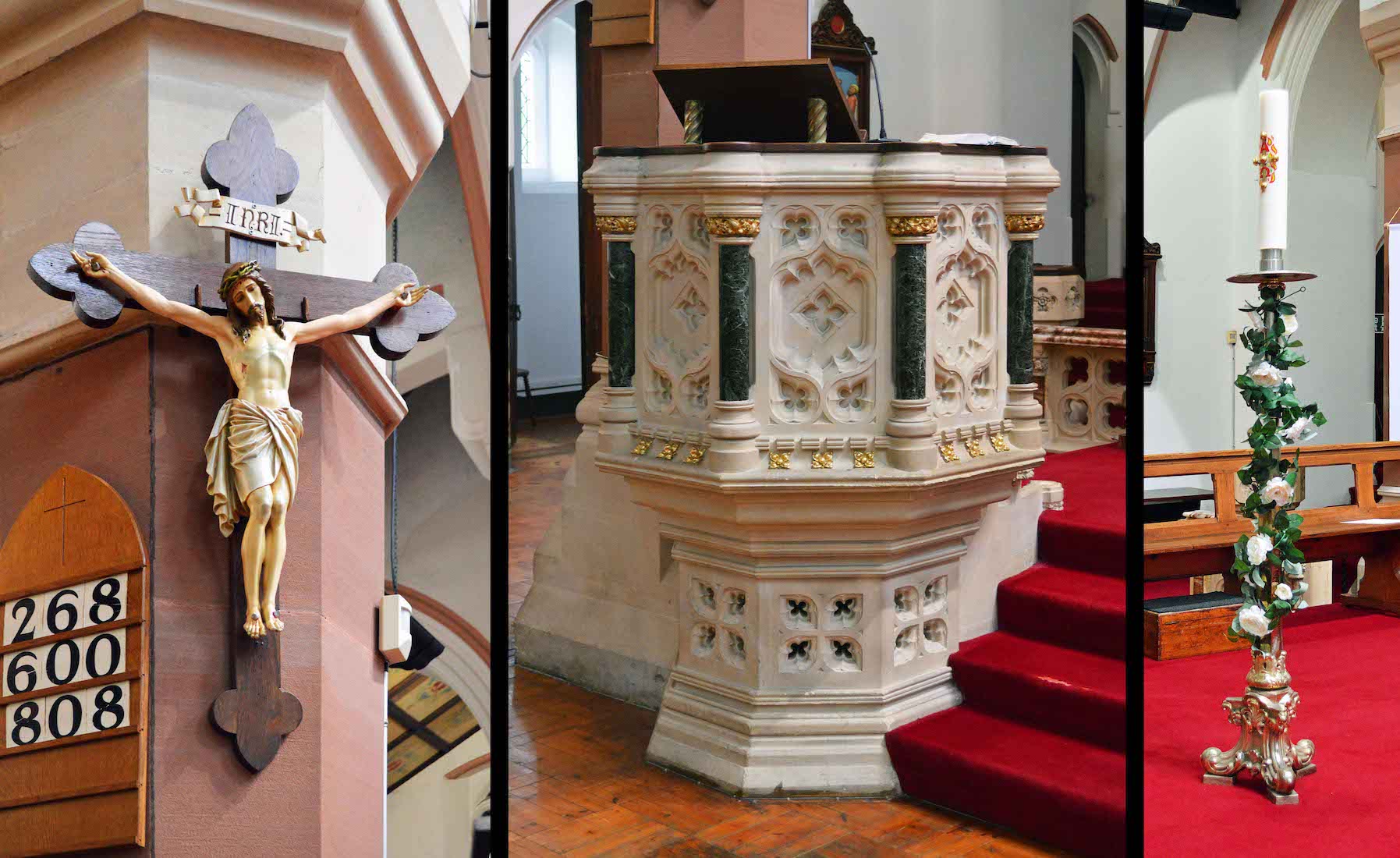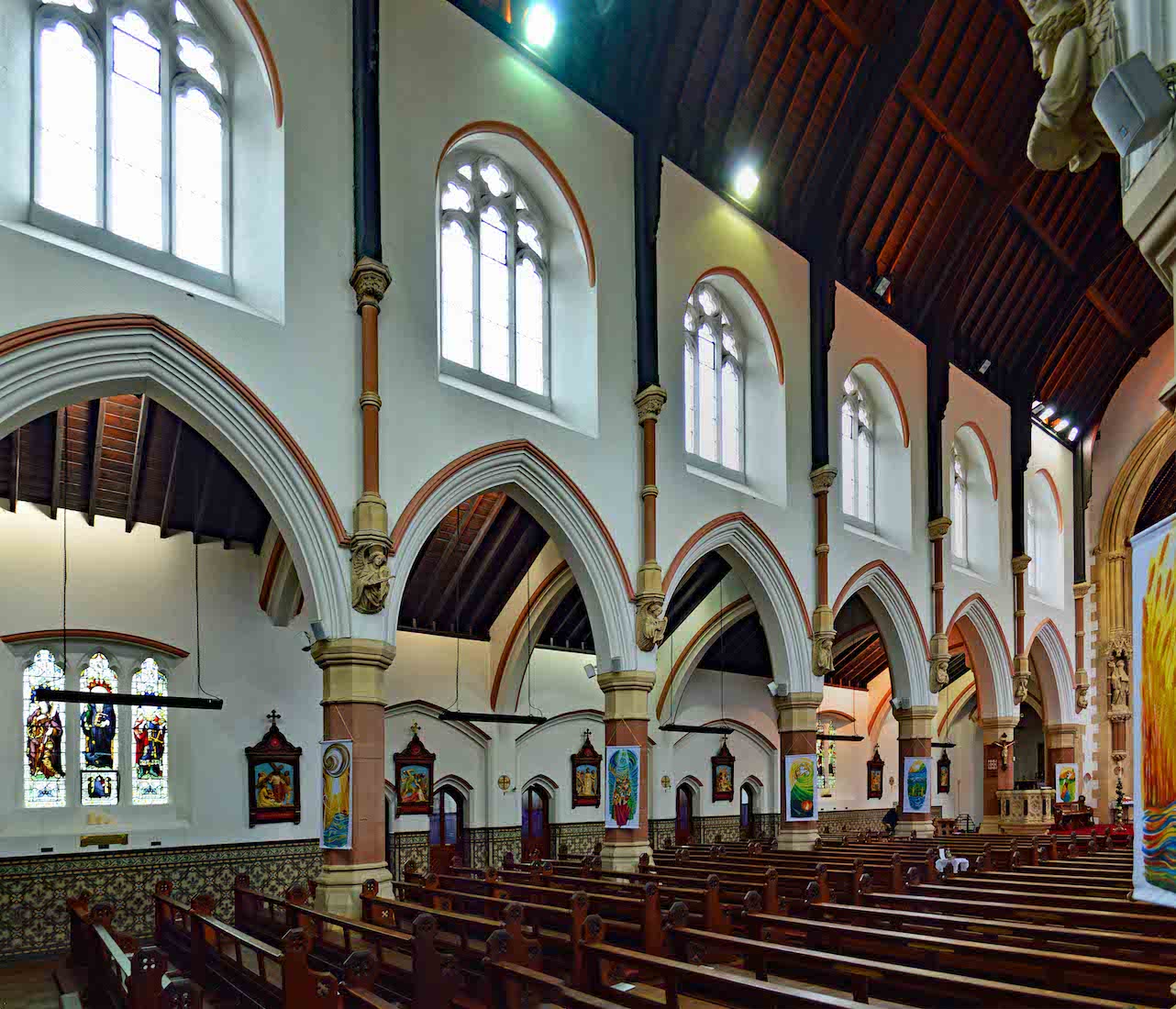
Along the north nave wall we see two stained glass windows, four confessional doors, and various stations of the cross. The lower part of the wall is lined with a decorative mosaic panel. PLAN
22. NAVE MOSAIC
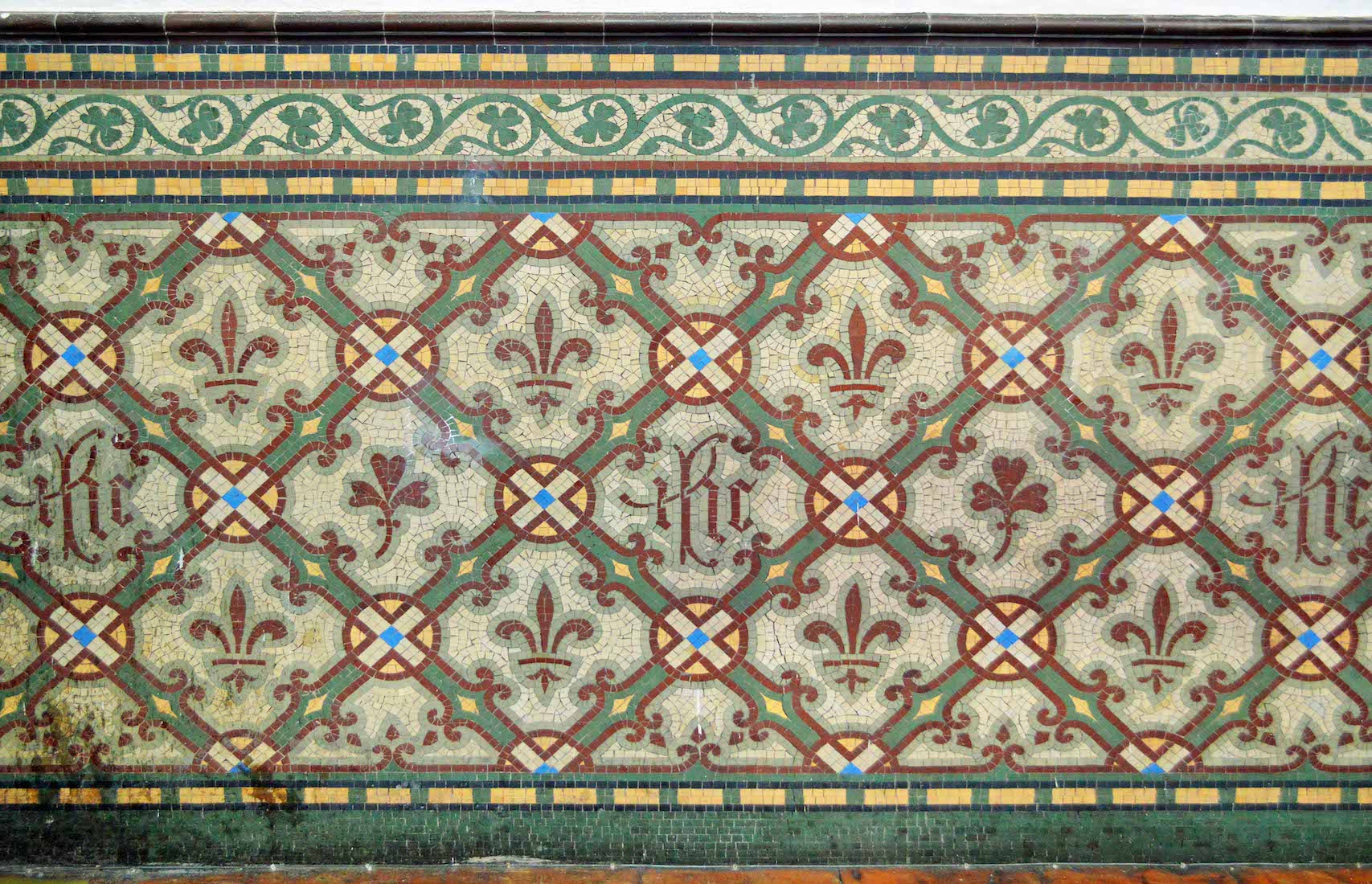
Mosaic panels are a feature of this cathedral. This panel depicts the fleur-de-lys, clover leaves, and the IHC symbol for Christ (the first three letters in Latinised Greek of the name ‘Jesus’).
23. GROTTO AND WINDOW
The small grotto at the West end of the North aisle remembers Saint Bernadette of Lourdes in France, who experienced Marian apparitions of a ‘young lady’ who asked for a chapel to be built at the nearby cave-grotto at Massabielle. The stained glass window depicts from left, Saints Julian, Benedict and King Henry.
24. EASTERN END OF NORTH NAVE
We shall return to the Stations of the Cross, but this view shows the other stained glass window in this wall, at the Eastern end. The window shows St Wulstan, St Joseph and the Christ Child, and St John. It was given by the congregation in memory of Father Wulstan Richards who was responsible for the building of St Joseph’s.
25. ACROSS TO THE SOUTH NAVE
We cross over in front of the nave altar to the south nave. There is just one stained-glass window on this side of the nave.
26. SOUTH NAVE WINDOW
This is the only stained-glass window on this side of the nave. It pictures St Timothy, Saint Teresa, and Saint Bernard. St Teresa of Ávila was the originator of the·Carmelite·Reform, which restored and emphasized the austerity and contemplative character of primitive·Carmelite·life. St. Teresa was elevated to·doctor of the church·in 1970 by Pope·Paul VI, the first woman to be so honoured.
27. SOUTH NAVE
The central statue is of St David. St David was a Welsh bishop of Mynyw during the 6th century. He is the patron saint of Wales. • At the far end is a statue of Christ pointing to his ‘Sacred Heart’.
28. ST DAVID AND THE SACRED HEART
The central statue is of St David. St David was a Welsh bishop of Mynyw during the 6th century. He is the patron saint of Wales. • The Sacred Heart is a medieval symbol of Christ’s sacrifice, particularly within the Roman Catholic Church. It signifies the redeeming love of God as the source of illumination and happiness, hence the flames, and the thorns represent the Crown of Thorns that Christ wore on the Cross.
29. STATIONS OF THE CROSS I–V
The Stations of the Cross that currently hang in the Cathedral were brought from Antwerp by Fr Willibrod Van Volckxson. They depict the journey of Jesus to the Cross, and are used as an aid to meditation. Shown here are Stations I – V: I Jesus is condemned to death; II Jesus carries His cross; III Jesus·falls for the first time; IV Jesus meets His mother, Mary; V Simon of Cyrene helps Jesus carry the cross.
30. STATIONS OF THE CROSS VI– IX
These further Stations are: VI Veronica·wipes the face of Jesus; VII Jesus falls for the second time; VIII Jesus meets the women of Jerusalem; IX Jesus falls for the third time.
31. STATIONS OF THE CROSS X – XIV
The final Stations are: X Jesus is stripped of His clothes; XI Jesus is nailed to the cross; XII Jesus dies on the cross; XIII Jesus is·taken down from the cross; XIV Jesus is placed in the tomb.
32. FONT
At the East end of the nave North aisle stands the baptismal font. Baptism is regarded as an initiation rite of entry to the Church and to the Christian life.
33. ST JOSEPH’S CHAPEL
This chapel stands just beyond the baptismal font. Beyond the altar is a statute of Joseph carrying the Christ child, with a worshipping angel on either side. Joseph is identified by the flowering sprig he carries – a reference to an old legend. I sometimes wonder whether he gets tired of carrying this sprig!
34. ST JOSEPH, CEILING
Above the statue of Joseph, the square ceiling panels show a fleur-de-lys logo referring to Mary, and a similar logo with a central J referring to Joseph.
36. CHAPEL ALTAR
The reredos behind the altar shows two scenes from the life of Christ: the Nativity, and the placing of the body of Jesus in the tomb. At centre, is a tabernacle, with a crucifix above. The tabernacle contains the reserved elements of the Eucharist. On the door is the image of the Lamb with Flag – a reference to Christ as being the sacrificial Lamb.
37. CHAPEL CEILING
The images on the square panels of the ceiling of this chapel are of two types. One is a four-fold Image of the fleur-de-lys with a central rose; the other is a similar image but with the central capital letter M standing for Mary.
38. CHAPEL WINDOWS
There are two stained glass windows in this chapel. One shows the Annunciation in which the archangel Gabriel speaks to Mary. The other depicts the two Irish saints St Patrick and St Brigid. Saint Brigid of Kildare is one of Ireland’s patron saints, along with Patrick and Columba. Irish hagiography makes her an early Irish Christian nun, abbess, and foundress of several monasteries of nuns, including that of Kildare in Ireland, which was famous and revered.
39. SANCTUARY
We leave the Blessed Sacrament Chapel, and move to the front of the nave. Before us in the foreground from left to right are the pulpit, the nave altar, and two statues of the Virgin Mary. At centre, behind the sanctuary arch is the reredos and three stained-glass windows. The small area at the right of this view appears to serve as the traditional Lady Chapel.
40. PULPIT, CRUCIFIX, CANDLE
The octagonal pulpit is attractive and decorated with green marble columns. Above the pulpit is a crucifix, and to the right a Paschal candle. The candle reminds us that Christ is the light of the world.


